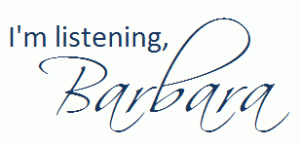If you are a student in my COMM 2322 class, please answer these two questions. I will make a word cloud with your responses.
PR Scavenger Hunt for COMM 4333

For our first “real” day of class, we’ll have a short scavenger hunt to find useful sites for public relations writers.
In pairs, look up your assigned site(s) below. (I have intentionally NOT hyperlinked to the sites in this post, to encourage independent searching skills.) Take specific note of the following:
- Name of site
- Types/categories of information you found there
- One specific topic that you found interesting
- How this site might be useful for PR Writing students
Reply/respond to this blog post with what you have found. Then, if you wish, you can use what you found as the basis for one of your PR Connections on your own blog later.
PR News Sites
- PR Week
- PR Tactics
- Ragan Report
- PR Daily
Public Relations Organizations
- Public Relations Society of America
- International Association of Business Communicators
- International Public Relations Association
- Florida Public Relations Association
Public Relations Blogs
- Communication Overtones by Kami Huyse
- PR 2.0 by Brian Solis
- PRos in Training by Kelli Matthews
- PR Communications by John Cass
- Bad Pitch Blog by Kevin Dugan and Richard Laermer
- PR Squared by Todd Defren
Podcasts on Public Relations, Writing and/or Public Speaking
- For Immediate Release
- Inside PR
- Quick & Dirty Tips: Grammar Girl
- Quick & Dirty Tips: The Public Speaker
Additional Resources
- AP Stylebook
- The Elements of Style by William Strunk, Jr.
(Though this post is written specifically for my COMM 4333, PR Writing, students at Southeastern University, others — especially PR professors — might find it useful. Please feel free to adapt as needed for your own use.)
AP Style Bootcamp :: Flagging Your 2010 AP Stylebook
Get out your 2010 AP Stylebook, Post-It notes and a pen and get ready for a short bootcamp by Barbara Nixon. Learn what the five most important things to know about AP Style are, and even get a bonus at the end. Flag your book as you go along, pausing the Prezi below when you need to.
If you have the 2009 AP Stylebook, then see the Prezi I created earlier this year for the 2009 edition.
Want a PDF of the 5 Things and their page numbers that I refer to in the Prezi? Here you go:
Blogging Guidelines for COMM 2322

This post explains the types of content I expect you to write about in your blog for COMM 2322: Public Relations Applications. (For information on how to start your blog, see Getting Started with WordPress.) This blog counts as about a third of your grade in the class, and it does require frequent “care and feeding.” Use your Blog Editorial Calendar, available in BlackBoard, to help keep you on track for which posts are due when.
Please add a category for each type (listed below), and make sure each post is categorized appropriately. Each post for this class must have the category of COMM 2322 along with at least one additional category. (If you do not categorize your posts with the name of the class, it will be much more difficult for me to find them, and you cannot earn full credit.)
1. Reading Notes – Create brief notes or key ideas from the reading assigned for that week’s class. Jot down 3-5 ideas that you believe are the most important & wish to remember. Be very brief, but write enough so someone who can’t read your mind understands what you mean and I am convinced that you actually did the readings. Remember to cite your source(s) when you paraphrase or quote materials from the readings; use a hyperlink to the book (either at the publisher’s site or at a bookseller like Amazon.com). Though these weekly assignments are due Saturday at 11:59pm, many students prefer to do their Reading Notes before they take their weekly RATS (Readiness Assessment Tests), which are due on Mondays.
2. Topic of the Week – You will have a specific topic related to public relations writing to write about. You will have about 15 of these before the end of the semester. See our TOW list for your class. Along with the Reading Notes, the Topics of the Week are due Saturdays by 11:59pm.
3. PR Connections – commentary, reflections and opinions about PR issues/examples that were not addressed in class. These can be responses to other PR blogs you read, links to interesting posts or articles, embedded YouTube videos, etc. Ragan’s PR Daily is a great place to go for inspiration for PR Connections posts. You will write at least ten of these during the semester.
4. Blog comments – whenever you comment on someone’s PR blog (whether it’s a PR professional or a PR student), add the comment to ONE post that you update throughout the semester so I can assess your online participation. You will need 25 comments during the semester. Do this only for PR-related blogs. See Tracking Your Blog Comments for Nixon’s Classes for more information, including specifics on the formatting.
5. Personal – optional category. Use it for any posts not related to public relations.
You may add other categories and sub-categories of your choice. Please keep in mind that when I evaluate your blog I will pay special attention to the categories listed above, but I will not ignore other posts. I will perform a wholistic evaluation of your blog, looking for:
- professionalism: Clear, correct, thoughtful writing
- frequency: Sufficient posts in categories 1-3, posted throughout the semester. There will be at least two blog checkpoints during the semester.
- linking: Identify other PR blogs (use PR Open Mic or my blogroll in my Delicious bookmarks as starting points) and link to them. Respond to others’ posts. Become a part of the blogosphere. Blogging should not be lonely.
- readability: brief & concise writing style, use of white space, bold characters, images, bullet points
SUPER-IMPORTANT: In order for you to get credit for your blog, I need to know where it is. Tell me your blog address by completing this Google Form; do this no later than the end Week Three of class.
Questions? Just let me know.
NOTE: Many thanks to Dr. Mihaela Vorvoreanu at Purdue University, who allowed me to use her blogging guidelines from her PRinciples class. They were so well-written that I made just a few tweaks for my own class. Dr. V knows that Blogs Matter.
WordPress 101 :: Getting Started With Your Blog

Students in most of my classes have blogging as a component of their grades. Many of them have rarely even read blogs, no less written one of their own. In this post, I am combining many posts I’ve previously written to help them get started in WordPress.
1
Review the slides in my “Getting Started in WordPress” presentation below. In this presentation, you’ll learn
- Blogging Do’s & No-No’s
- Signing Up for Your WordPress Account
- Setting Up Your Account
- Writing Posts & Pages
- How to Display Your Blog Comments (that you write on others’ blogs)
2
Watch some of the many FAQ screencasts provided by WordPress to help you with the step-by-step instructions. Here are a few of the best ones to help you get started on the right foot:
- What should I do first?
- General settings
- Where’s my dashboard (and what’s it for)?
- Writing & publishing your posts
- Choosing and applying a theme (look and feel of your blog)
- Displaying your blog’s Categories (using the Category widget)
- and dozens more
3
Read the blogging tips I’ve provided in various posts here at Public Relations Matters.
- 10 Blogging Tips That Will Change Your Life (or Grade, at least): This post was featured at Ragan’s PR Daily and is the most often viewed post on my blog.
- 11 Tips for New Bloggers, from New Bloggers
- 3-5-3 :: Blog Feedback for #PRCA2330 and #PRCA3330 (written for my students this past summer; the links in the post may take you to pages I wrote for other classes, but the content of the post is valuable)
4
And though you may have a good handle on the technical aspects of blogging, remember that the technical side is only part of the blogging equation. Corinne Weisgerber, a professor at St. Edward’s University and fellow PROpenMic member, created this presentation for her Social Media for PR class. The emphasis? How blogging can help you create your personal brand online. Take a look. It’s worth the time.
5
Remember to let me know your blog address by completing this Google Form. If I can’t find your blog, I can’t grade it. Hint, hint.
Topics of the Week :: COMM 2322
 In our PR Applications classes (COMM 2322 at Southeastern University), we’ll all blog about the same general topic each week during the semester. Your TOWs of 300 words or more should be posted by Saturday at midnight at the end of each week.
In our PR Applications classes (COMM 2322 at Southeastern University), we’ll all blog about the same general topic each week during the semester. Your TOWs of 300 words or more should be posted by Saturday at midnight at the end of each week.
If you are unsure how to get started writing these TOWs, many times you can use this three-pronged approach:
- What did you learn?
- What surprised you?
- What do you want to know more about?
WEEK ONE
- Using the three-pronged approach (above), what are your reactions to the NewsU Course you took on Understanding Media: Processes and Principles? (NOTE: You can post this week’s entry as late as Week Three, as you will not be creating your blogs until that time.)
WEEK TWO
- What is a “public”? Which publics are you a member of? How did you choose to become a member of those publics? (Choose and discuss at least three.) (NOTE: You can post this week’s entry as late as Week Three, as you will not be creating your blogs until that time.)
WEEK THREE
- Why are comments such an integral part of blogs? What advice would you offer on writing effective blog comments?
WEEK FOUR
- If you could work in an era of PR history (from a time before you were born), which one would it be? What interests you most about this era and why?
WEEK FIVE
- Based on what you read in Chapter 4 of your Public Relations Strategies & Tactics book, do you think it’s more beneficial for a new PR practitioner to begin his/her career in a PR department or in a PR firm? What are the advantages and disadvantages of each? (NOTE: It is acceptable for you to write this TOW and post it during Week Six, after we discuss departments and firms.)
WEEK SIX
- One Week of Twitter (NOTE: You will do your One Week of Twitter experience mostly during Week Five, then write about it during Week Six.)
WEEK SEVEN
- What advice would you offer to a student who is working on a resume or preparing for a job interview? Be sure to share links to three or more sites / blog posts that would be helpful for a PR student.
WEEK EIGHT
- Using the three-pronged approach (above), what are your reactions to the NewsU Course you took on Online Media Law: The Basics for Bloggers and Other Publishers earlier this semester?
WEEK NINE
- Complete another NewsU course of your choice that you think would be beneficial for a public relations practitioner. What are your reactions to this course? Would you recommend it to other Journalism/PR students at Southeastern University? Why or why not? (Remember to name and link to the specific course you took. Also, submit your Course Report for the course.)
WEEK TEN
- Watch my interview with Martin Waxman. Use the three-pronged approach (described above) to react to the interview.
OR
- Watch my interview with Kneale Mann. Use the three-pronged approach (described above) to react to the interview.
WEEK ELEVEN
- Listen to at least one hour of PR/marketing podcasts (such as For Immediate Release, Inside PR, The Creative Career, Coming Up PR, Trafcom News or Marketing Over Coffee). Briefly summarize what you heard. Discuss how listening to PR podcasts can benefit PR students or new PR practitioners. (Optional: Also, write a short review of the podcast at iTunes.)
WEEK 12
- Based on what you learned in this week’s class discussions and lecture on Public Relations During Times of Crisis, write a blog post about some aspect of crisis communication.
WEEK 13
- Public relations practitioners often use news releases to get their clients into the news. Provide 10 tips for writing an effective news release. (Be sure to link to at least two sources for your information.)
COMM 2322 Assignment :: Interview with a PR Pro

For this assignment (COMM 2322 only), you will choose and interview a public relations professional, and then write about this interview at your blog. This post will be a minimum of 500 words. Post your recap on your blog, and in the Course Materials area in BlackBoard, you’ll need to provide me with the PR professional’s contact information information (name, title & company, phone number and e-mail address).
Due Date: See BlackBoard
Though a face-to-face interview is preferred, a phone or webcam interview is acceptable. An interview that is e-mail or text-based only is not acceptable.
Schedule your interview at least a week before this assignment is due, preferably two. PR professionals sometimes have unpredictable schedules, and it’s possible that you may need to reschedule.
Include an introductory paragraph that introduces the PR professional, including title and company, educational background, etc. Mention your connection to the professional (how you found him/her) and how you conducted the interview (face-to-face, phone or webcam).
Questions/Topics you need to include:
- What’s a typical week like? (If no week is typical, then what was last week like?)
- Tell me about a project you worked on that you are especially proud of.
- What do you do to keep current in the PR industry?
- What do you wish you would have known before starting your career in PR?
- How important is writing in your career?
- What three tips would you offer someone just starting out in PR?
- After interviewing this person, are you (the student, not the practitioner) more or less likely to want to have a career in PR? Why?
Some questions you may wish to ask:
- Did your education prepare you for working in PR? How?
- What has surprised you the most about working in PR?
- How has PR changed since you entered the field?
- How does technology affect your daily work?
- When your company is hiring for an entry-level PR position, what makes a candidate stand out?
- What professional organizations are you involved in? (For example, PRSA, IABC, etc.)
- Ask for feedback on your resume
- More informational interview questions
Some things you may wish to do:
- Include a photo of your interviewee. (This can be a photo he or she provides or one that you take yourself.)
- Link to your interviewee’s LinkedIn profile and/or blog.
- Conduct the interview using Skype and two webcams. Record the interview with Vodburner, and post the interview at your blog.
Questions?
[NOTE: This must be an informational interview that you conduct this semester. Do not “recycle” an interview that you conducted during a previous semester.]
Blogging Guidelines :: #PRCA3330 and #COMM4333, Fall 2010
“You only learn to be a better writer by actually writing.” Doris Lessing
In addition to traditional writing assignments (news releases, feature stories, etc.) in our PR Writing course, all students in my PRCA 3330 classes at Georgia Southern University and COMM 4333 class at Southeastern University will also create and maintain a blog as part of the course. This post explains the types of content I expect you to write about in your blog for PRCA 3330 or COMM 4333. (For information on how to start your blog, see Getting Started with WordPress.)
Please add a category for each type (listed below), and make sure each post is categorized appropriately. Each post for this class must have the category of “PRCA 3330” or “COMM 4333” along with at least one additional category. (If you do not categorize your posts with the name of the class, it will be much more difficult for me to find them, and you cannot earn full credit.)
1. Reading notes – brief notes or key ideas from the reading assigned for that week’s class. Jot down 3-5 ideas that you believe are the most important & wish to remember. Be very brief, but write enough so someone who can’t read your mind understands what you mean and I am convinced that you actually did the readings. Remember to cite your source(s) when you paraphrase or quote materials from the readings; use a hyperlink to the book (either at the publisher’s site or at a bookseller like Amazon.com). Though these weekly assignments are due Saturday at 11:59pm, many students prefer to do their Reading Notes before they take their weekly RATS (Readiness Assessment Tests).
2. Topic of the Week – Starting the second week of class, you will have a specific topic related to public relations writing to write about. You will have about 15 of these before the end of the semester. See our TOW list for your class.
3. PR Connections – commentary, reflections and opinions about PR issues/examples that were not addressed in class. These can be responses to other PR blogs you read, links to interesting posts or articles, embedded YouTube videos, etc. You will write at least ten of these during the semester.
4. Blog comments – whenever you comment on someone’s PR blog (whether it’s a PR professional or a PR student), add the comment to ONE post that you update throughout the semester so I can assess your online participation. You will need 25 comments during fall semester. Do this only for PR-related blogs. See Tracking Your Blog Comments for Nixon’s Classes for more information, including specifics on the formatting.
5. Personal – optional category. Use it for any posts not related to public relations.
You may add other categories and sub-categories of your choice. Please keep in mind that when I evaluate your blog I will pay special attention to the categories listed above, but I will not ignore other posts. I will perform a wholistic evaluation of your blog, looking for:
- professionalism: Clear, correct, thoughtful writing
- frequency: Sufficient posts in categories 1-3, posted throughout the semester. There will be at least two blog checkpoints during the semester.
- linking: Identify other PR blogs (use PR Open Mic or my blogroll in my Delicious bookmarks as starting points) and link to them. Respond to others’ posts. Become a part of the blogosphere. Blogging should not be lonely.
- readability: brief & concise writing style, use of white space, bold characters, images, bullet points
SUPER-IMPORTANT: In order for you to get credit for your blog, I need to know where it is. Tell me your blog address by completing this Google Form; do this no later than the end of August.
Questions? Just let me know.
NOTE: Many thanks to Dr. Mihaela Vorvoreanu at Purdue University, who allowed me to use her blogging guidelines from her PRinciples class. They were so well-written that I made just a few tweaks for my own class. Dr. V knows that Blogs Matter.
Topics of the Week for #PRCA3330 and #COMM4333

Fall 2010
In our PR Writing classes (PRCA 3330 at Georgia Southern University and COMM 4333 at Southeastern University), we’ll all blog about the same general topic each week during the semester. Your TOWs of 300 words or longer are due (should be posted on your own blog) by Saturday at 11:59 p.m. at the end of each week.
If a week has more than one topic listed, choose one of the available topics on those weeks.
Every time you refer to a website or another blog, be sure to hyperlink to the post. And consider inserting graphics or videos to add visual interest for your readers.
If you are unsure how to get started writing these TOWs, many times you can use this three-pronged approach:
- What did you learn?
- What surprised you?
- What do you want to know more about?
WEEK ONE
- Which types of social media you currently participate in (such as blogging, podcasting, social networking, etc.), which platforms you use, and why. [NOTE: Since you are creating your blog after after Week One, you will go back and add this post in.]
WEEK TWO
- Visit Mignon Fogarty’s Grammar Girl’s website. Either read one of her blog posts or listen to one of her podcasts on an area of grammar that is troublesome to you. Write about what you learned (using the three-pronged approach described toward the top of this blog post.)
WEEK THREE
- Why are comments such an integral part of blogs? What advice would you offer on writing effective blog comments?
WEEK FOUR
- Last week, you took the NewsU Cleaning Your Copy course. There were four main topics in this course: Grammar, AP Style, Punctuation and Spelling. Using the three-pronged approach described at the top of this post, describe your reactions to this course. Remember to include a hyperlink to the course, too.
WEEK FIVE
- Chapter 3 in your Public Relations Writing and Media Techniques book discusses ways that public relations practitioners can avoid legal hassles. One of these ways is to avoid plagiarism. Based on what you read in the chapter and additional research you will do online, what are some of the best practices (tips & tricks) for avoiding plagiarism in your writing?
WEEK SIX
- What makes a story newsworthy?
WEEK SEVEN
- One Week of Twitter [Note: You will do the One Week of Twitter assignment during Week Six, and then write about it before the end of Week Seven.]
WEEK EIGHT
- Last week, you took the NewsU The Lead Lab course. Using the three-pronged approach described at the top of this post, describe your reactions to this course. Remember to include a hyperlink to the course, too.
WEEK NINE
- Create a profile at PR OpenMic, a social network developed by Auburn University’s Robert French. Connect with me there as a friend so that I know you have joined. Then for your topic of the week, describe what PR OpenMic has to offer to PR students and recent grads. Be sure to discuss at least three or four things you encounter at the site, and provide hyperlinks to the specific areas in the site for your readers.
WEEK TEN
- In WordPress, go into your Dashboard and take a look at your stats. What kinds of things does the Site Stats page tell you? How would PR practitioners benefit for monitoring their own or their company’s blog?
WEEK ELEVEN
- Address several of the following questions about infographics. What are they? How could one be useful in a story for your client? How do you go about creating one? Create one if you can, and embed it in your blog post this week.
WEEK 12
- Listen to at least one hour of PR/marketing podcasts (such as For Immediate Release, Inside PR, The Creative Career, Coming Up PR, Trafcom News or Marketing Over Coffee). Briefly summarize what you heard. Discuss how listening to PR podcasts can benefit PR students or new PR practitioners. Be sure to include a hyperlink to the podcast’s website/blog. (Optional: Also, write a short review of the podcast at iTunes.)
WEEK 13
- Working either alone or in a group of no more than three, create a list of at least 10 ways that PR people can sometimes drive journalists crazy. After each item on the list, indicate what the PR person could/should do instead. Hyperlink to sources as needed. (If you are working with others, each of you should post to his/her own blog, and note where else it is crossposted and who the co-authors are.)
WEEK 14
- During Week 14, you will take the Five Steps to MultiMedia Storytelling course at News University. Using the three-pronged approach described at the top of this post, describe your reactions to this course. Remember to include a hyperlink to the course, too.
WEEK 15 (Optional)
- Just what is a “Social Media News Release”? When should a PR practitioner use a SMNR rather than (or perhaps in addition to) a “regular” news release? Be sure to include links to at least three websites/blogs that discuss SMNRs.
WEEK 16 (Optional)
- What advice would you offer PR students who are new to blogging? Come up with your own Top 10 list.
Prof. Nixon’s Fall 2010 Syllabi
For the most recent versions of all of my Fall 2010 syllabi, see where I’ve posted them at Scribd.



